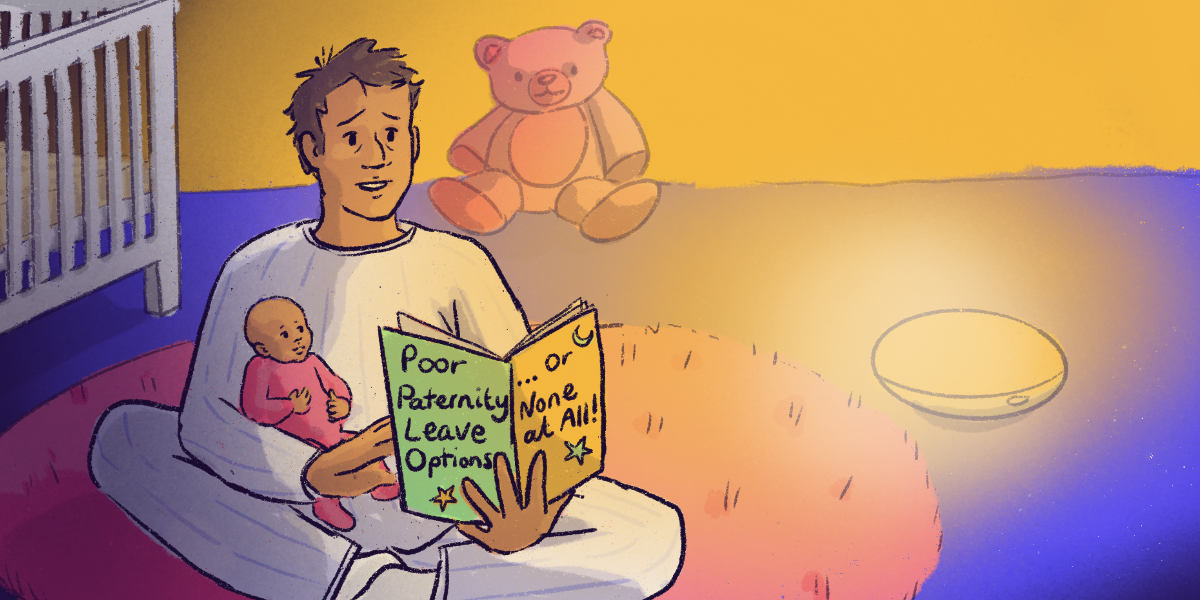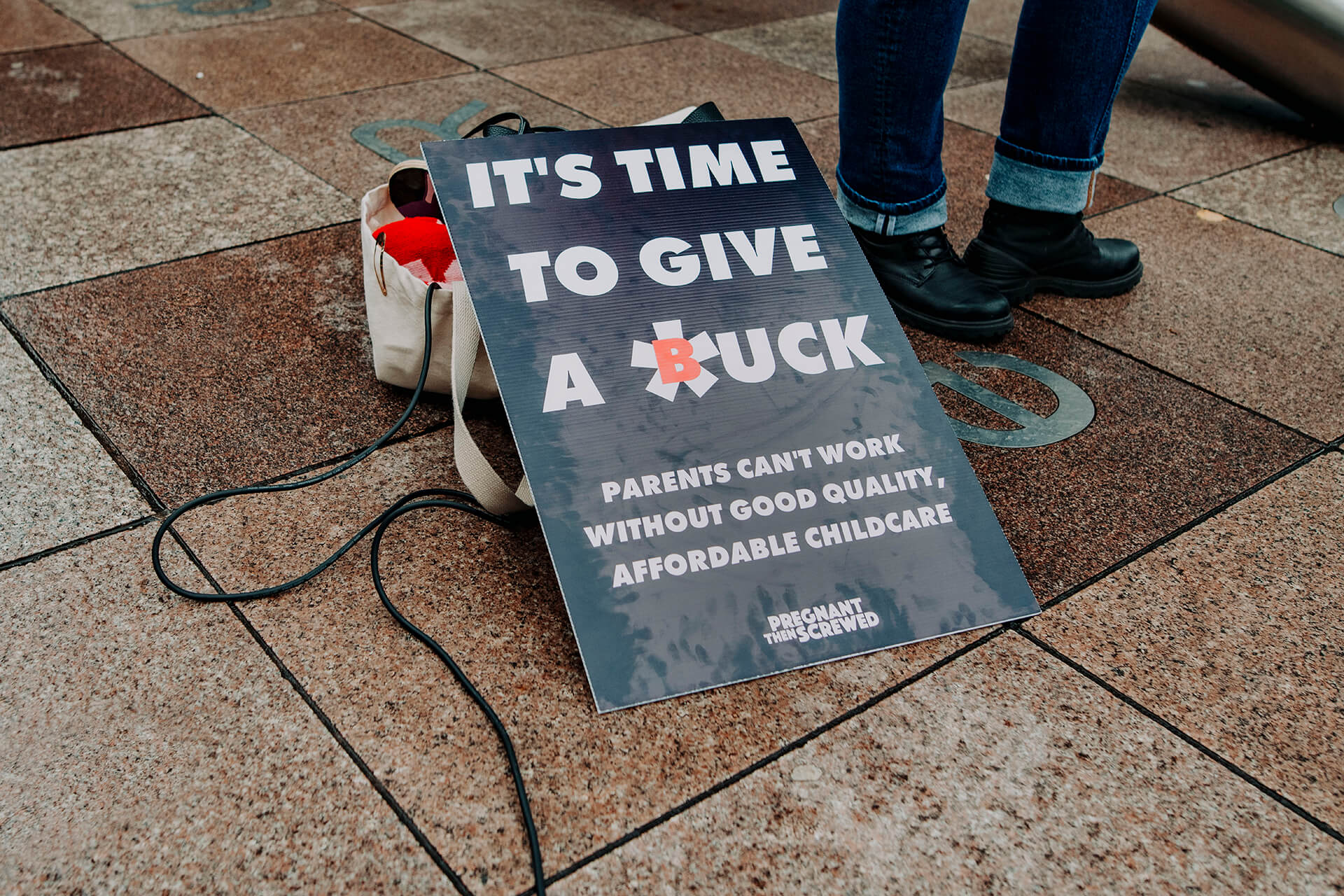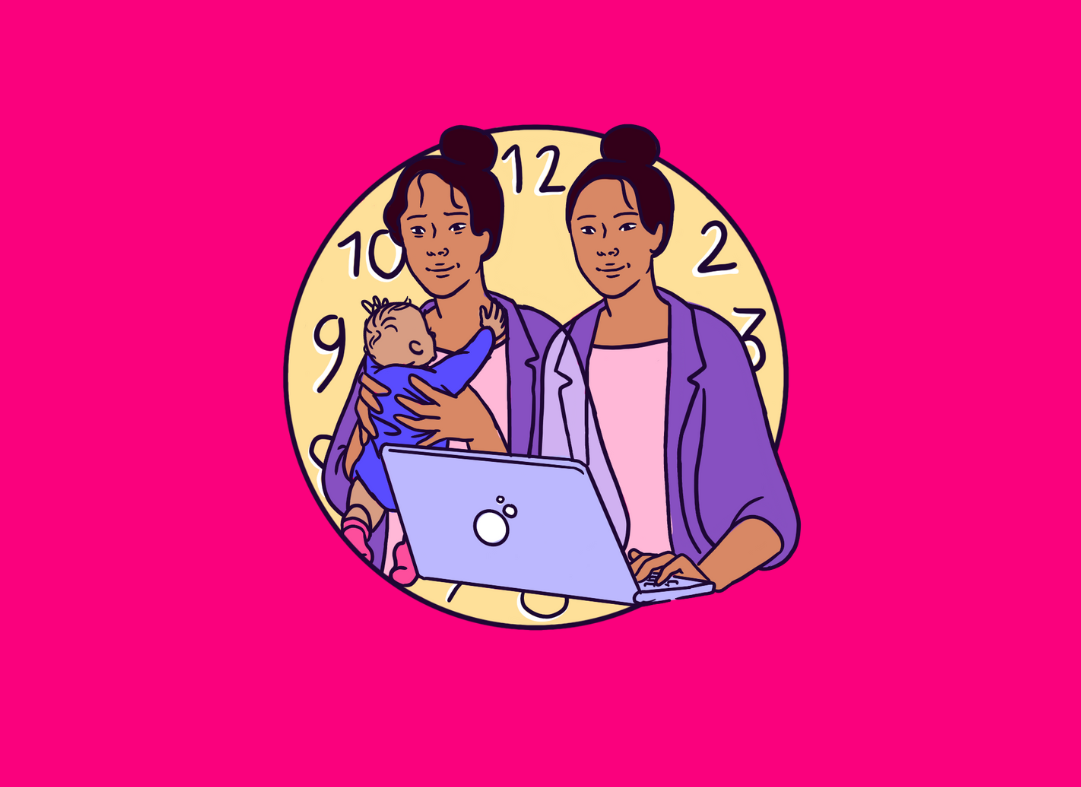New research uncovers economic and health benefits of boosting paternity
leave
- Countries with more than six weeks of paid paternity leave have a 4% smaller
gender wage gap and 3.7% smaller labour force participation gap - Closing gender employment gaps in all UK authorities would increase economic
output by £23 billion - Just 18% of Brits think 2 weeks paternity leave or less is enough
- One in five (22%) dads and partners that are eligible for paternity leave take no
leave at all
DATE: 15th JUNE 2023; A new report from The Centre for Progressive Policy (CPP), Pregnant Then Screwed and Women in Data® on the societal and economic impact of paternity leave has launched today. The research finds that increasing paid paternity leave to six weeks could reduce the gender pay gap and help to equalise men and women’s participation in the labour market. The economic case for tackling gender inequality is strong, with analysis suggesting that closing gender employment gaps could increase economic output by £23 billion (1).
The report, “Leave in the lurch: Paternity leave, gender equality and the UK economy”, explores the economic and health impacts of extending the statutory entitlement to paternity leave and pay, including its impacts on gender equality in the labour market.
The UK has the least generous paternity leave entitlement in Europe. Currently, the statutory entitlement to paternity leave is two weeks and the weekly rate for paternity pay is £172 a week, which is 44% of the national living wage. Shockingly, new survey data reveals that for 1 in 5 (20%) dads, no parental leave options were available to them following the birth or adoption of
their child. Of those that were entitled to some leave, but returned to work early, 43% cited financial hardship as the reason for not taking their full entitlement. 63% of all recent fathers said they did not feel mentally ready to return to work when they did (2).
The research found that fewer than one in five (18%) prospective parents say they or their partner could afford to take six weeks of paternity leave at the current statutory rate of pay. By contrast, 57% of prospective parents said they or their partner could afford to take six weeks of paternity leave if it was paid at 90% of their income, as statutory maternity pay is for women (3).
CPP and Pregnant then Screwed are calling on the government to increase the length of non-transferable paternity leave to a minimum of six weeks and to pay it at 90% of income in line with current statutory maternity pay, alongside enhancing existing maternity rights to reduce financial hardship, the gender employment gap, and the gender pay gap. Paternity leave should be available to all working dads and partners.
New CPP analysis of OECD data finds that countries with more than six weeks of paid paternity leave have a 4 percentage point smaller gender wage gap and 3.7 percentage point smaller labour force participation gap than countries that have less than six weeks. Closing the gender employment gap in all UK local authorities would increase economic output by £23bn
(approximately 1% of GDP).
Joeli Brearley, CEO and founder of Pregnant Then Screwed, comments, “We finally have evidence that boosting paternity leave will reduce the gender pay gap, improve the health of both parents and it will benefit the economy. Paternity leave is not a luxury but a necessity.’’ When fathers and partners take paternity leave, it supports the mother’s return to the labour market. In fact, data from the YouGov survey has found that 65% of mothers with children under the age of 12 thought that increasing paid paternity leave would have a positive impact on mothers’ readiness to return to work. As it stands, the situation in the UK is perpetuating mental health problems. Almost a third (29%) of parents surveyed said either they or their partner had experienced a new mental health
issue in the two years following the birth of their most recent child.. 45% of these parents received no treatment or support. A huge 83% of mothers with children under 12 thought that increasing paid paternity leave would have a positive impact on mothers’ mental health. If mental health issues continue to affect parents when they return to work, this will also likely have productivity impacts, as improving mental health has been consistently associated with higher productivity.
Rosie Fogden, Head of Research & Analysis at CPP said:
“While long-held societal norms about gendered parenting roles are shifting, the UK’s parental leave system has not kept pace. As our findings show, it is still very difficult for many fathers and second parents to be able to afford to take leave when their children are born, and this has serious consequences for both parents’ mental health. If the UK wants to reduce the gender pay gap and stem the growing demand for mental health services, government policy must send a strong signal about the importance of both parents’ role in providing childcare from the very beginning of a child’s life. Extending paid paternity leave could also help us to close the gender pay gap, which in turn could boost the economy.”
The length of leave taken by parents is closely tied to statutory entitlement, regardless of income. Changing this entitlement could therefore have a strong influence on behaviour, and this new research has shown there is broad public support for increasing paternity entitlement. Just 18% of Brits felt that two weeks of paternity leave is long enough, and a majority (66%)
would support an increase beyond the current statutory provision of two weeks.
Joeli Brearley, CEO and founder of Pregnant Then Screwed comments “If our next Government wants to set out a positive vision for the future, then thriving families must be central to their campaign. We have the worst paternity benefit in Europe which is negatively impacting children, gender equality and the economy. We are calling on the government to increase the length of non-transferrable paternity leave to a minimum of six weeks at 90% of income, in line with current statutory maternity pay. It is clear from our research that this is what voters want and it is about time we kept pace with other forward thinking nations.’’
To read the full report click here
1 Local authority level analysis of the drivers of productivity carried out by CPP for their Fair Growth report, published June 2023
2 Results based on CPP analysis of a survey of 3,540 parents carried out by Pregnant then Screwed in January and February 2023. Responses have been weighted by Women in Data to target national representation.
3 Results are based on a sub-sample of 252 prospective parents from a nationally and politically representative survey of 2,136 adults carried out by YouGov for Pregnant then Screwed and CPP on 22nd to 23rd May 2023.
ENDS
For all media enquiries please contact:
Pregnant Then Screwed: Email: [email protected]
Tel: 07756 525 004
Centre for Progressive Policy: Grace Hetherington, Head of Media & Communications.
[email protected]. Tel: 07867315837
About the research:
To explore more about how much parental leave is currently being taken, and by who, Women in Data® have randomly sampled from over 20,000 responses to Pregnant Then Screwed’s voluntary ‘State of the Nation’ survey and applied weighting on UK regions, gender and social grade to get a final sample of 3,540 parents: 1,735 women and 1,805 men that targets national representation. This paper publishes results of CPP analysis on parental leave and discrimination for the first time.
In addition to this, PTS and CPP commissioned YouGov to conduct a paid, nationally and politically representative survey of 2,136 adults to examine public opinion on paternity leave and the relationship between parental leave and mental health. Fieldwork was carried out on the 22nd – 23rd May 2023.
Analysis of OECD data was carried out by CPP and findings are based on a heterogeneous
difference in differences regression model which draws on data from 38 countries for the time period 1975-2021, with the treatment group consisting of countries that have more than six weeks of paid father-specific leave. Results are significant at the 1% level.
The YouGov data:
- Almost a third of dads say they took no paternity leave at all after the birth of their last child.
- Only 18% of the public think 2 weeks paternity leave it enough (just 8% of labour voters think that it is enough)
- 65% of mothers with children under 12 thought that increasing paid paternity leave would have a positive impact on mothers’ readiness to return to work.
- Just 40% of the public think paternity leave should be 5 weeks or less, with the majority supporting a big increase to non-transferable paternity leave.
- Two-thirds (67% of those eligible for paternity leave say they could afford to take 6 weeks or more if they could access the same benefit as those eligible for maternity leave (i.e. 6 weeks paid at 90% of salary). This reduced to just 19% on the current rates of pay.
- 62% of dads say they would take more leave if the rate of SPP increased.
- 74% of the public think increased paternity leave would help dads to bond with their kids, increasing to 84% amongst those eligible for paternity leave.
- Almost a third (29%) of parents surveyed by YouGov said either they or their partner had experienced a new mental health issue in the two years following the birth of their most recent child.
- 45% of these parents received no treatment or support.
- 83% of mothers with children under 12 thought that increasing paid paternity leave would have a
positive impact on mothers’ mental health.
Pregnant Then Screwed, State of the Nation research:
- 20% of fathers said that no parental leave options were available to them following the birth or adoption of their child.
- 43% of fathers cited financial hardship as the primary reason for returning to work early.
- As household income increases, the availability of enhanced leave to men and their ability to take it in full increases dramatically; from 12% of men with a household income of £20-25k having access to and taking full advantage of enhanced leave compared to 51% of men with a household income of over £200k
- 17% of recent fathers who did not take either statutory or enhanced leave in full said that they were unable to stay the full length of parental leave because of pressure from their employers.
- 13% returned for fear of missing out on progression opportunities. This shows that workplace culture also plays a part in driving fathers back into work
- 63% of recent fathers surveyed by PTS said they did not feel mentally ready to return to work when they did
- A woman’s partner taking parental leave is associated with a 34% increase in the likelihood of a woman being physically ready to return to work.
- While women who have had a child or adopted in the last three years take 40 weeks leave on average, the median length of parental leave taken by recent fathers is just two weeks
Returning to work
- When returning to work, 87% of recent fathers (who have had or adopted a child in the last three years) said they returned full-time, while only 30% of recent mothers did the same.
- 54% of recent mothers returning part-time or on reduced hours.
- Recent mothers were also much more likely to put in a flexible working request than men, with 72% of men not requesting flexible working when returning to work compared to 28% of women.
- The average number of weeks leave taken by women’s partners was just 2 – the minimum legal entitlement – with over a third (36.6%) of women saying their partner took no parental leave at all
- 27% of recent mothers surveyed did not feel physically ready to return to work when they returned
- 53% did not feel mentally ready and 59% did not feel emotionally ready.
- CPP’s analysis of these survey results finds that a woman’s partner taking parental leave is associated with a 34% increase in the likelihood of a woman being physically ready to return to work
- 40% of recent parents requested flexible working when they returned from parental leave with nearly one in five of those who requested it (19%) having their request denied completely and one in four (26%) having their request partially met.
- Those with household incomes lower than £35k were significantly more likely (30%) to have their flexible leave requests denied, while older parents (aged 35-44) were the most likely (60%) to have their request accepted in full



